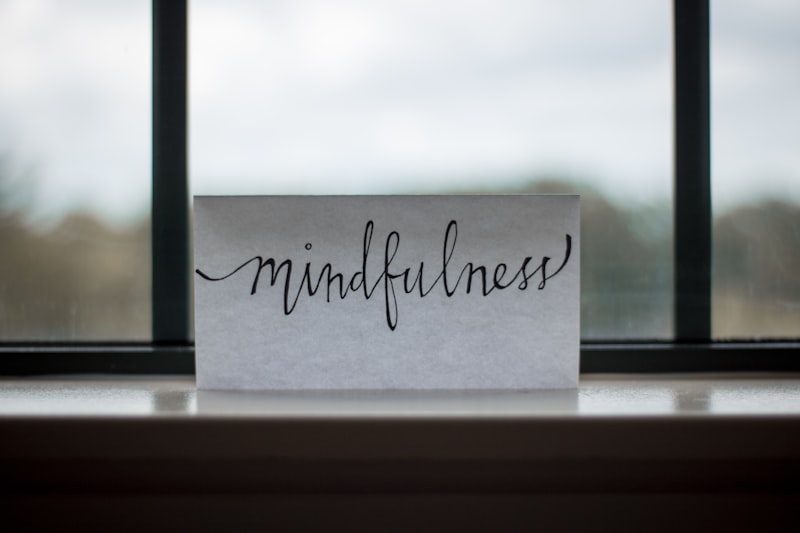Ever wondered how yoga can be more than just stretching and posing? It turns out, yoga is a powerhouse when it comes to boosting your mental and emotional resilience. In today’s fast-paced world, stress and anxiety seem to lurk around every corner. That’s where yoga steps in, like a trusted friend offering a calming hand.
Yoga isn’t just about flexibility; it’s about building inner strength and resilience. When you unroll your mat and begin to flow through poses, you’re not just toning your muscles; you’re also training your mind to find stillness amidst chaos. This practice of mindfulness, central to yoga, teaches you to be present in the moment, to acknowledge your thoughts without judgment, and to let go of what doesn’t serve you.
Think of yoga as your mental gym. Just like lifting weights strengthens your muscles, yoga strengthens your mind. It helps you cultivate a positive outlook, manage stress better, and bounce back from setbacks with renewed vigor. When life throws challenges your way, yoga gives you the tools to stay centered and resilient.
The beauty of yoga lies in its versatility. Whether you’re flowing through a Vinyasa sequence that energizes you or holding a restorative pose that melts away tension, each practice contributes to your mental and emotional well-being. It’s like building a toolkit for life—one that equips you with breathing techniques to calm your nerves, meditation practices to clear your mind, and physical postures to release pent-up emotions.
So, next time you roll out your mat, remember you’re not just doing yoga; you’re investing in your mental and emotional resilience. It’s a journey that unfolds with each breath, each stretch, and each moment of stillness. Embrace it, and watch how yoga transforms not only your body but also your mind and spirit.
Unlocking Inner Strength: Yoga’s Role in Building Mental Resilience
In today’s fast-paced world, finding inner strength and resilience is more crucial than ever. Yoga, with its profound impact on both the body and mind, emerges as a powerful tool for cultivating mental resilience. Unlike traditional workouts that focus solely on physical fitness, yoga intertwines movement with mindfulness, fostering a holistic approach to well-being.
At its core, yoga encourages individuals to connect with their inner selves through controlled breathing and deliberate poses. These practices not only enhance flexibility and strength but also promote mental clarity and emotional balance. Imagine yoga as a sanctuary where stress dissipates with each exhale, replaced by a sense of calm and self-assurance.
One of the key elements of yoga is its ability to teach practitioners to embrace discomfort and challenge with grace. Holding challenging poses teaches us to breathe through discomfort, translating this resilience into everyday life. It’s not just about physical endurance; it’s about training the mind to stay steady amid life’s inevitable storms.
Moreover, yoga’s focus on mindfulness cultivates awareness of our thoughts and emotions. By practicing mindfulness on the mat, individuals develop the capacity to observe their mental patterns without judgment. This self-awareness becomes a cornerstone of resilience, empowering individuals to respond thoughtfully rather than react impulsively to adversity.
In essence, yoga is more than a physical exercise; it’s a journey inward towards self-discovery and resilience. It teaches us that true strength lies not in avoiding difficulties, but in our ability to face them with unwavering determination and peace. As we unlock our inner resilience through yoga, we pave the way for a healthier, more balanced life—one breath, one pose at a time.
Emotional Balance Through Asanas: Yoga’s Impact on Mental Health
Imagine starting your day with a gentle stretch into the Mountain Pose, grounding yourself like a sturdy tree rooted deeply in the earth. This simple act not only aligns your body but also calms your mind, preparing you to face the day with clarity and focus. As you flow through the sequences, each movement synchronized with your breath, tension dissipates, and stress melts away.
The Warrior Pose, with its strong and open stance, instills confidence and courage. It teaches us to confront challenges head-on while maintaining a sense of calm within. This asana strengthens both body and mind, encouraging resilience in the face of adversity.
For those battling anxiety or depression, the Child’s Pose offers solace. Folding into oneself like a tender embrace, this posture releases tension stored in the body’s deepest layers. It nurtures a sense of security and nurtures a feeling of safety, fostering a sense of security and trust.
Ultimately, yoga asanas cultivate mindfulness, the practice of being present in the moment without judgment. This awareness is key to managing emotions and reducing stress. By incorporating yoga into your routine, you create a space for self-discovery and healing, promoting emotional balance and mental well-being.

Incorporating yoga into your daily life empowers you to navigate life’s ups and downs with grace and resilience. Each asana is a step towards inner harmony, guiding you on a journey towards emotional balance and mental peace.
From Stress to Serenity: Harnessing Yoga for Emotional Resilience
At its core, yoga intertwines movement with mindfulness. Through deliberate poses (asanas) and controlled breathing (pranayama), practitioners cultivate a heightened awareness of their body and mind. This mindful practice isn’t just about stretching muscles; it’s about stretching the limits of emotional endurance. Each pose becomes a metaphorical stance against stress, each breath a reminder to release tension and invite calm.
The beauty of yoga lies in its adaptability. Whether you’re seeking solace in a hectic day or resilience in the face of adversity, yoga offers a toolkit of techniques. Picture yourself in tree pose (Vrikshasana), grounded yet reaching for the sky, embodying stability amidst life’s storms. Or perhaps in child’s pose (Balasana), surrendering to the present moment, finding comfort in letting go.
Scientifically, yoga has been shown to reduce cortisol levels, the body’s primary stress hormone, while simultaneously boosting serotonin production, promoting feelings of well-being. It’s akin to turning down the volume on anxiety and turning up the harmony within.
Emotionally, the practice of yoga encourages self-compassion and acceptance. It invites you to explore the depths of your emotions without judgment, fostering a resilient spirit that can weather life’s emotional waves with grace.
Mindful Movement: Yoga Practices for Strengthening Emotional Stability
Yoga, as a mindful movement practice, offers a plethora of techniques that not only enhance physical flexibility and strength but also cultivate a deep sense of emotional well-being. Through a combination of breathwork, gentle stretches, and mindfulness exercises, yoga enables individuals to connect with their inner selves and manage their emotions more effectively.
One of the core principles of yoga is its emphasis on breath. Deep, conscious breathing patterns employed during yoga practice help regulate the nervous system, reducing the production of stress hormones like cortisol while promoting the release of endorphins, the body’s natural mood elevators. This physiological response not only induces a state of calm but also enhances emotional stability over time.

Moreover, yoga encourages practitioners to be present in the moment, focusing attention on the sensations within the body rather than dwelling on past regrets or future worries. This mindfulness aspect of yoga trains the mind to observe thoughts and feelings without judgment, fostering acceptance and emotional resilience.
Incorporating yoga into your routine doesn’t require hours of practice each day. Even dedicating a few minutes to simple yoga poses and breathing exercises can make a noticeable difference in your emotional well-being. Whether it’s a gentle flow sequence in the morning or a restorative yoga session before bed, these practices can help you feel more centered and grounded amidst life’s inevitable challenges.
Ultimately, yoga as a mindful movement practice offers a holistic approach to strengthening emotional stability. By integrating breath awareness, mindfulness, and intentional movement, individuals can cultivate a deeper connection with themselves and build the emotional resilience needed to navigate life’s ups and downs with grace and ease. Discover the transformative power of yoga and embark on a journey towards greater emotional well-being today.
Yoga and the Mind: Techniques to Foster Mental Resilience
In today’s fast-paced world, where stress and uncertainty often loom large, fostering mental resilience has become more crucial than ever. One of the most effective and time-tested methods for cultivating this resilience is through the practice of yoga. Beyond its physical benefits, yoga is renowned for its profound impact on mental well-being.
At its core, yoga encourages a holistic approach to health, integrating breathing exercises, meditation, and physical postures to harmonize the mind and body. Through regular practice, individuals can develop a heightened awareness of their thoughts and emotions, gaining better control over their mental state.
One of the fundamental techniques in yoga for enhancing mental resilience is mindful breathing. By focusing on deep, intentional breaths, practitioners can calm the mind and reduce stress levels. This simple yet powerful practice helps in cultivating a sense of inner peace and clarity, enabling individuals to navigate challenges with a more composed mindset.
Another cornerstone of yoga is meditation. Through guided meditation sessions, practitioners learn to observe their thoughts without judgment, fostering a non-reactive awareness. This practice enhances emotional stability and resilience, allowing individuals to respond to life’s ups and downs with greater equanimity.
The physical aspect of yoga also plays a pivotal role in mental resilience. Asanas, or yoga postures, not only improve flexibility and strength but also release tension stored in the body. This physical release is often accompanied by a mental catharsis, where practitioners experience a sense of lightness and relief.
In essence, yoga offers a comprehensive toolkit for building and sustaining mental resilience. By integrating mindful breathing, meditation, and physical postures into daily life, individuals can cultivate a robust inner foundation capable of withstanding adversity. This ancient practice continues to prove its relevance in modern times, providing a sanctuary of calm amidst the chaos, and empowering individuals to thrive mentally and emotionally.
Breathing Through Adversity: Yoga’s Therapeutic Effects on Emotions

Yoga, beyond its physical benefits, offers a profound pathway to emotional healing. In times of adversity, its therapeutic effects on emotions are undeniable. Imagine yoga as a gentle guide, leading you through turbulent emotional waters with steady breaths and calming poses. It’s not just about stretching muscles; it’s about stretching your capacity for resilience and inner peace.
When life throws challenges, yoga invites us to breathe deeply, anchoring ourselves in the present moment. The deliberate inhalations and exhalations synchronize with movements that release tension stored in the body, but also in the mind and heart. This rhythmic breathing isn’t just a physical act; it’s a mental practice that teaches us to let go of negativity and embrace clarity.
In the realm of emotions, yoga acts as a sanctuary where vulnerability meets strength. As we flow through poses like Warrior and Child’s Pose, we confront our emotions head-on, acknowledging their existence without judgment. This acceptance is key to emotional resilience, fostering a sense of balance even amidst chaos.
Moreover, yoga’s impact extends beyond the mat. It rewires our responses to stress, rewinds the narrative of anxiety, and retunes the melody of our emotional symphony. Through consistent practice, we cultivate patience, compassion, and self-awareness—essential tools for navigating life’s challenges with grace.
Frequently Asked Questions
How does yoga help manage stress and anxiety
Discover how yoga alleviates stress and anxiety through mindful breathing, gentle movements, and relaxation techniques that promote mental calmness and emotional balance.
Can yoga improve emotional balance and well-being
Discover how yoga can enhance emotional balance and overall well-being. Learn about the proven benefits of yoga in reducing stress, promoting relaxation, and fostering a positive mindset.
What are the benefits of yoga for mental resilience
Discover how yoga enhances mental resilience through a concise exploration of its benefits, including stress reduction, improved focus, emotional balance, and enhanced overall well-being.
Which yoga practices are best for enhancing resilience
Discover effective yoga practices that enhance resilience by focusing on sequences that combine deep breathing with dynamic movements. Poses like Warrior series, Tree pose, and Cat-Cow stretches promote physical strength and mental fortitude. Incorporating meditation and relaxation techniques such as Savasana and alternate nostril breathing can further cultivate resilience.
Is yoga suitable for reducing symptoms of depression
Discover how yoga can help alleviate symptoms of depression with our concise FAQ. Learn about the potential benefits of yoga practices in managing depression, including stress reduction, mindfulness enhancement, and improved overall well-being.



